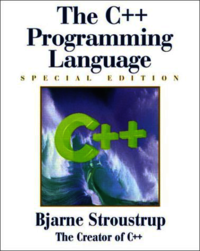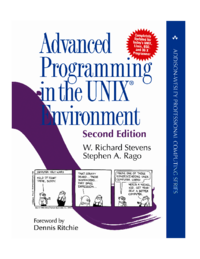Editorial "Addison-Wesley Professional"
Se han encontrado 3 CoincidenciasProgramming in Objective-C (4th Edition)
170 Visitas | 207 Descargas | 2013-10-01 03:53:33 | rmartinez
This is the 4th edition of the world's bestselling book on Objective-C programming, fully updated to cover Xcode 4.2 and Automatic Reference Counting (ARC). Programming in Objective-C is a concise, carefully written tutorial on the basics of Objective-C and object-oriented programming for Apple's iOS and Mac platforms. The book makes no assumptions about prior experience with object-oriented programming languages or with the C language (which Objective-C is based upon). Because of this, both beginners and experienced programmers alike can use this book to quickly and effectively learn the fundamentals of Objective-C. Readers can also learn the concepts of object-oriented programming without having to first learn all of the intricacies of the underlying C programming language. This unique approach to learning, combined with many small program examples and exercises at the end of each chapter, makes Programming in Objective-C ideally suited for either classroom use or self-study. This edition has been fully updated for the significant changes in iOS 5 and Xcode 4.2. One of the biggest changes is Automatic Reference Counting (ARC). This edition gives detailed coverage of how to use ARC to improve and simplify memory management in Objective-C programs.

The C++ Programming Language (Special 3rd Edition)
ISBN: 0201700735; Date: Feb. 15, 2000; Pub: Addison-Wesley
187 Visitas | 221 Descargas | 2014-03-13 19:16:20 | raimels
I find using C++more enjoyable than ever. C++’s support for design and programming has improved dramatically over the years, and lots of new helpful techniques have been developed for its use. However, C++is not just fun. Ordinary practical programmers have achieved significant improvements in productivity, maintainability, flexibility, and quality in projects of just about any kind and scale. By now, C++ has fulfilled most of the hopes I originally had for it, and also succeeded at tasks I hadn’t even dreamt of. This book introduces standard C++†and the key programming and design techniques supported by C++. Standard C++is a far more powerful and polished language than the version of C++introduced by the first edition of this book. New language features such as amespaces, exceptions, templates, and run-time type identification allow many techniques to be applied more directly than was possible before, and the standard library allows the programmer to start from a much higher level than the bare language.

Advanced Programming in the UNIX Environment
Programación en C en sistemas compatibles con el estándar POSIX.
119 Visitas | 157 Descargas | 2014-05-12 18:09:24 | yeiniel
Ofrece una detallada descripción de las API de los sistemas compatibles con el estándar POSIX.1003 así como ejemplos de uso y aplicaciones.
Contribuir
Usted puede contribuir con Libros UCLV, es importante para nosotros su aporte..
Contribuir